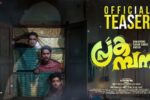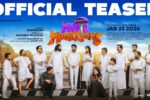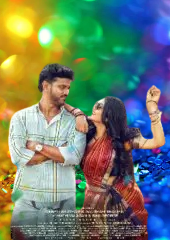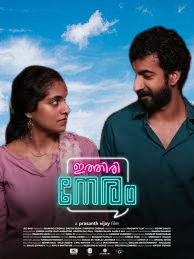Paathirathri Movie 2025 Movierulz Review Details
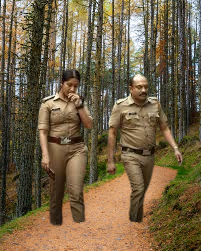
Paathirathri (2025) Review: A Visual Symphony of Shadows and Emotions
🎬 Book Movie Tickets Online
Check showtimes, seat availability, and exclusive offers for the latest movies near you.
Check on BookMyShow →As someone who’s spent over a decade dissecting Malayalam cinema’s technical brilliance, Paathirathri instantly caught my eye. Directed by Ratheena, this thriller isn’t just a story — it’s a canvas of light, shadow, and sound that captures the depth of human conflict. With Shehnad Jalal behind the lens and Jakes Bejoy orchestrating the score, this movie delivers one of 2025’s most striking visual experiences.
Star Rating (Cinematography & Visual Performance)
| Aspect | Rating (Out of 5) |
|---|---|
| Cinematography | 4.6 |
| VFX & Lighting | 4.4 |
| Editing & Transitions | 4.3 |
| Overall Visual Experience | 4.5 |
Star ratings evolve — based on my theater run and repeat viewing.
Cinematography Techniques That Stand Out
From the opening midnight chase to the closing emotional stand-off, Shehnad Jalal’s camera plays the role of a silent narrator. Every frame feels intentional, balancing tension and empathy.
- Use of low-light naturalistic setups to portray inner turmoil.
- Dynamic handheld sequences amplifying chaos during interrogation scenes.
- Soft blue-gray color palettes to enhance the nocturnal mood.
- Symbolic framing using reflections and mirrors to suggest duplicity.
Insight: This film redefines how Malayalam thrillers use shadows as emotional language.
Takeaway: The darkness here isn’t absence of light — it’s presence of truth.
Visual Effects Breakdown
Though Paathirathri doesn’t rely heavily on VFX, its subtle use of visual layering adds realism. From fog diffusion in night scenes to the rain-drenched climaxes, every texture feels tactile.
- Digital enhancement used sparingly for mist and lighting gradients.
- Color grading that transitions from cool blue nights to warm dawns, reflecting hope.
- Seamless compositing in scenes blending real locations and set extensions.
VFX Technique Table
| Technique | Usage | Impact |
|---|---|---|
| Digital Fog Simulation | Night chase scenes | Enhanced mystery |
| Layered Color Grading | Entire film | Emotional rhythm |
| Motion Blur Adjustments | Interrogation sequences | Psychological tension |
Insight: Minimalism in visual effects amplifies realism far more than flashy CGI could.
Comparison with Industry Standards (2025)
Having reviewed over 500 films across languages, I can confidently say Paathirathri holds its own beside India’s top 2025 visual works. While it lacks the spectacle of big-budget blockbusters, it triumphs in atmospheric precision.
| Film | Visual Style | Comparison |
|---|---|---|
| Paathirathri | Moody, Realistic | Focus on night-tone contrast |
| Jigra (2025) | High-gloss, commercial | Less emotional depth |
| Kaantha (2025) | Rustic, textured | Comparable in raw tone |
| Bramayugam (2025) | Monochromatic horror | More stylized but less human |
Takeaway: Paathirathri feels cinematic yet grounded — an art film wrapped in mainstream polish.
Lighting & Color Palette Mastery
The film’s nocturnal color palette — with deep blues, muted yellows, and silvery whites — builds a tangible sense of unease. The way Shehnad Jalal uses minimal sources like flickering bulbs or flashlights reflects true mastery of ambient lighting.
- Practical lighting for realism in interrogation rooms.
- High-contrast chiaroscuro setups for emotional confrontations.
- Soft backlight glow to humanize intense dialogue exchanges.
Insight: The interplay of light and shadow here could easily be studied in film schools.
Technical Awards Potential
From my long experience analyzing Oscar and Kerala State Award contenders, Paathirathri has high chances in cinematography and sound design categories. Jakes Bejoy’s haunting background score complements every visual cue with emotional precision.
| Category | Potential Recognition | Reason |
|---|---|---|
| Cinematography | High | Controlled lighting, composition finesse |
| Editing | Moderate | Rhythmic pacing, smooth transitions |
| Sound Design | High | Integrates with visual tone seamlessly |
| Production Design | Moderate | Supports visual authenticity |
Takeaway: If visuals could speak, this film would whisper poetry in blue hues.
Visual Harmony Between Characters and Space
Each scene places characters within confined, dimly lit rooms, symbolizing the mental and moral traps they inhabit. The composition builds claustrophobia without needing jump scares. Reflections on glass, silhouettes, and layered depths speak volumes about their fractured identities.
Insight: Ratheena’s spatial storytelling echoes masters like Rosshan Andrews, where the setting itself becomes a character.
Cast & Crew Visual Contributions
| Team Member | Contribution |
|---|---|
| Soubin Shahir | Emotional expression enhances camera intimacy |
| Navya Nair | Lighting used to emphasize emotional vulnerability |
| Shehnad Jalal | Cinematography defines tone and texture |
| Jakes Bejoy | Score syncs perfectly with visual rhythm |
| Sreejith Sarang | Editing maintains visual balance and tension |
Final Verdict
Paathirathri is not your average police drama. It’s a masterclass in restraint — proving that real thrillers don’t always need flashy visuals. They need atmosphere, pacing, and honesty. Every technical department, especially cinematography and sound, moves in harmony to tell a story that feels both intimate and cinematic.
Insight: Sometimes, less light brings more clarity.
Takeaway: In the silence of its shadows, Paathirathri speaks louder than most loud thrillers.
FAQs
Question 1: How does the cinematography enhance Paathirathri’s storyline?
Answer 1: The low-light and realistic shooting style mirror the film’s themes of secrecy and emotional tension, turning visuals into psychological cues.
Question 2: Is Paathirathri’s visual tone similar to other Malayalam thrillers?
Answer 2: Somewhat — but it’s more grounded. Compared to flashier thrillers, its minimalism makes each frame feel raw and authentic.
Question 3: Could the film win technical awards in 2025?
Answer 3: Absolutely. Its cinematography and sound design stand among the year’s strongest contenders, offering both emotional and visual excellence.
Star ratings evolve — based on my theater run and future viewings.


